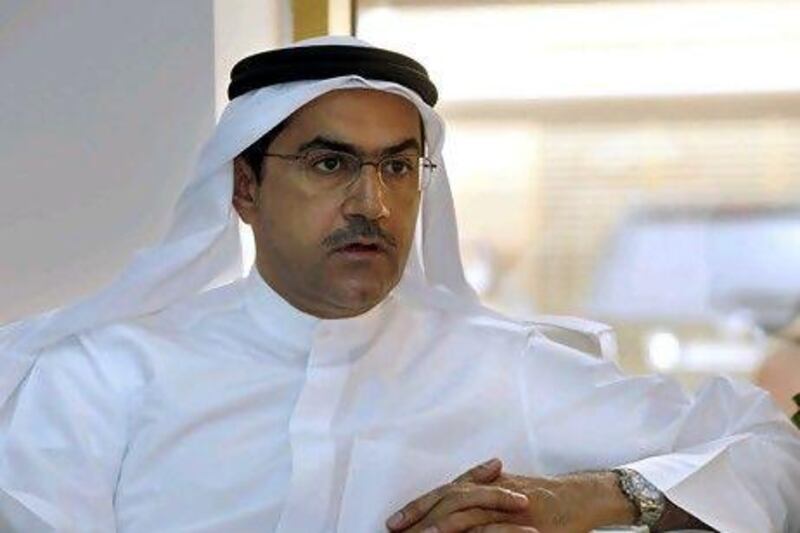Damas International is trying to recover hundreds of millions of dirhams' of investments, loans and payments for merchandise that the three Abdullah brothers made without proper documentation, says the jewellery company's chairman.
"We had a lot of collections and deals that were not documented properly, so people were only willing to come forward to the people with whom they shook hands," said Ibrahim Belselah, the chairman of Damas, a public company. He added that the brothers - Tawfique, Tawhid and Tamjid - routinely sealed deals with handshakes or verbal agreements, rather than formal contracts. "There's quite a lot of money still out there. It's in the hundreds of millions," Mr Belselah said.
The Dubai Financial Services Authority (DFSA) fined the company and the Abdullah brothers in March last year, and banned the brothers from executive positions at any company overseen by the regulator after it emerged the three men had improperly withdrawn Dh365 million (US$99.3m) of cash and almost two tonnes of gold worth Dh250m from Damas without shareholder approval. The DFSA also dissolved the Damas board.
It also emerged this week that the three brothers otherwise owe banks a total of about Dh1.2 billion, which has been a major sticking point of negotiations over a plan to sell their assets.
The unofficial nature of the deals the trio made is the reason Damas, the largest jeweller in the Middle East, had to appoint them as advisers to the company. Without their knowledge and contacts, it would be difficult to recover all the loans, Mr Belselah said.
"They do not have any role in the operation of the company, they do not have any authority in the company whatsoever, their role is purely advisory," he said.
Mr Belselah was brought in last year to help steady Damas after the board stepped down.
As executives, the brothers invested company funds in a web of franchises and small jewellers across the Middle East and North Africa (Mena), in many cases acting as a wholesaler to the investments.
"Traditional business people have honoured the commitment," Mr Belselah said. "Some of them said they were in trouble and agreed to pay over time, some people returned goods because they could not sell them. It's gone better than expected. Overall, we are reaching 90 to 95 per cent collection. It's very positive."
He said he expected the collections process go on for "some time" but added that he hoped the group's restructuring of Dh3 billion of debt with more than 20 banks, including Standard Chartered, United Arab Bank and HSBC, would be agreed soon.
However, the deal is contingent on the signing of a repayment agreement between the Abdullah brothers, their personal companies, Damas and the banks. That is also expected to be signed imminently, Mr Belselah said.
The negotiations have been extended a number of times because of the extremely "complex" nature of the loans, the number of parties involved and the varying ownership structures and guarantees.
Damas's corporate debt restructuring comprises loans worth Dh1.1bn and a working capital agreement worth Dh1.9bn.
Mr Belselah said all parties involved, including the DFSA, were working together to get a deal signed.
In the past year, the company has instigated a number of measures to ensure board members cannot withdraw money from it without shareholder approval. "It's very important with a public company, and especially after the negative things that have happened, to restore proper corporate governance and the regulation of the DFSA," Mr Belselah said.
The company has set up committees on audit, remuneration and appointments and the board has met 24 times in the past year.
"We are completely changing the mind-set and embedding corporate governance in all our operations, not just the committees that sit at the top," Mr Belselah said. "Transparency is now the key."





